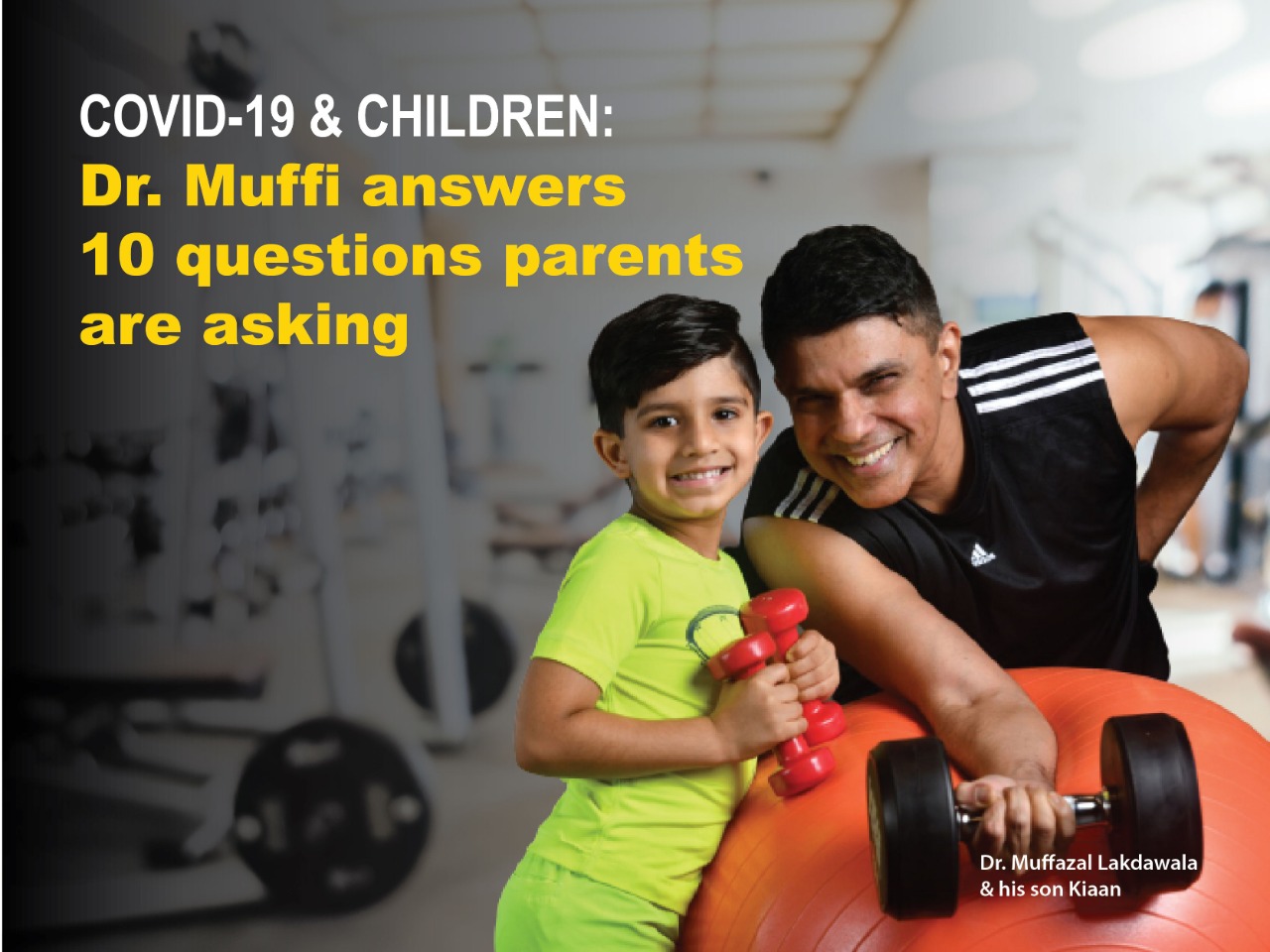Dr. Muffazal Lakdawala, one of India’s most well-known surgeons who helmed the Maharashtra government’s NSCI Dome Covid-19 facility in Mumbai, answers 10 questions parents are asking about Covid-19 and its impact on children.
Is it safe for young children to wear masks? And at what age should masks be made compulsory for children?
It is safe for children of age 5 and above to wear masks. Make sure that the masks are not too tight or that asphyxiate them. Make sure that they do not wear masks while running or playing active sports.
Do COVID-19 symptoms differ between children and adults?
Most common symptoms are fever, cough and cold, and diarrhoea in some cases. Majority of the children are asymptomatic or mildly symptomatic.
Can children be asymptomatic carriers?
It is most likely that majority of the children are asymptomatic carriers. There will be a very high risk for elders at home especially grandparents and most likely transmit the virus to them unknowingly.
Is it safe to opt for vaccination?
As long as you have the option to get vaccinated, you should by all means take the dose. This will only help the community cut down the spread in the long run.
Can children take the vaccine?
Only recently has the Pfizer and Moderna vaccine been tried on children between 12-15 years of age. The Pfizer vaccine has shown good results for kids of this age but not yet approved for common use.
At what age can children be tested for COVID-19?
There is no age limit for testing kids. We have tested kids as early as their first day after birth specially for COVID -19 positive mothers because the virus is not transmitted to the child, it is only when the child is feeding and if not properly sanitised or the mother is not wearing a mask that the child can get affected.
What tests are recommended for children – RT-PCR test, COVID Antigen, COVID Antibody?
RTPCR test has its own flaws, the yield of the virus is 65% correct if done properly, taken in the right medium, cultured in the right way from the nose, and only 35% positivity rate from the throat. Most COVID Antigen tests can give up to 40% positive results, so there’s almost zero chance of getting 100% correct results in whichever test you do. COVID antibody test should not be done in kids unless they are proven to be positive and you are thinking in terms of testing the antibody levels that they have developed.
What is the incubation period of the virus in children?
The incubation period for children is the same as in adults. It is between 1-3 days after they have come in contact with a positive person, however most of the times it is not picked up until the 5th to 7th day wherein the child would have already transmitted the virus to people looking after them or to their family members because they are hardly symptomatic in the initial phase.
Will the use of sanitizer affect my overall health?
The use of hand sanitizers will hardly affect your overall health. If someone has an allergy to the amount and type of alcohol used in the sanitizers then please be careful. The best thing to do is to use soap and water to wash hands as regularly as possible which will not impact your health.
How do we distinguish between a flu and COVID-19 infection?
It is almost impossible to differentiate between a flu and COVID-19 infection, because the symptoms are similar. As mentioned, the most common symptoms are fever and cough. Rarely does flu cause diarrhoea, however, with COVID you can get diarrhoea and abdominal cramps which is probably the only difference that one may face. If you think you are suffering from the flu, do not take it lightly and get tested for COVID – 19 at the earliest.
Also read: Children and the pandemic in conversation with Dr. Maffazal Lakdawala
